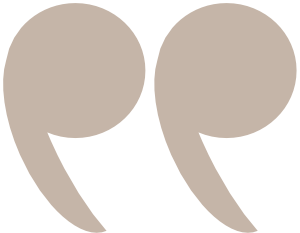 This article by Jennifer Tan (left, Director, Research & Products, Equities & Fixed Income, at the Singapore Exchange) was published in SGX's kopi-C: the Company brew series on 13 July 2018. The article is republished with permission.
This article by Jennifer Tan (left, Director, Research & Products, Equities & Fixed Income, at the Singapore Exchange) was published in SGX's kopi-C: the Company brew series on 13 July 2018. The article is republished with permission.
|
It might not be a stretch to say that bridge - one of the world's most popular card games - is in Wang Yuanluo's blood. |
Sense of Mission
"When I first entered the waste treatment industry, I approached it like any other enterprise, but over the last 23 years, I've come to view it as a social responsibility and a mission," she said.
"What drives me is that the business is not just a business. There is a societal and environmental purpose behind it, which makes it extremely meaningful. Without that sense of mission, I wouldn't have been able to stay in this industry for so many years, or grow the company to what it is today.".
 It's not only about assessing the risks and making the right decisions, but also working with your team to reach a common goal. It's not only about assessing the risks and making the right decisions, but also working with your team to reach a common goal.- Wang Yuan Luo |
Jinjiang Environment, a forerunner in China's waste-to-energy (WTE) industry, is one of the country's largest private operators in terms of waste treatment capacity.
Listed on SGX Mainboard in August 2016, the Group runs 21 WTE facilities in 12 provinces, autonomous regions, and centrally administered municipalities in China, with a current waste treatment capacity of 30,980 tonnes per day.
The WTE business involves the construction, operation and/or ownership of plants that treat municipal solid waste. Jinjiang Environment typically enters into long-term service concession agreements with local governments, as well as offers a range of tailored energy-saving and residual heat utilisation solutions under its Energy Management Contracting (EMC) division.
The long-term potential of the WTE business is undeniable, Wang said. "It's a very stable industry - China and the Southeast Asian countries have very large populations, there's rubbish every day, and those volumes are continuing to grow."
There is an increasing need to treat waste in China and other developing markets due to the environmental fallout, she noted.
"As about two-thirds of cities in China are surrounded by tonnes of rubbish, this is a pressing problem. Other developing markets tend to bury their waste in landfills, and as a result, there are harmful effects on the environment and human lives from the resulting pollution."
 Boosting Expertise Boosting Expertise |
||||||||||||||||
|
Jinjiang Environment has a current market capitalisation of about S$650 million. Between 2014 and 2017, group revenues have expanded by a compounded annual growth rate (CAGR) of 28.2%, while net attributable profits have risen by a CAGR of 18.6%. Gross profit margin has averaged 40.9% over this period.
Looking ahead, Jinjiang Environment aims to boost its leadership position in China by broadening its domestic footprint and upgrading its technology offerings, Wang said. |
||||||||||||||||
'Engulfed in Waste'
The Chinese government has also prioritised the issue of waste treatment, given the country's rapid urbanisation. In 2017, China's urban waste collection was more than 200 million tonnes, highlighting the phenomenon of "cities engulfed in waste", Wang said.
According to the 13th Five-Year Plan for the Construction of Detoxification Treatment Facilities for Municipal Solid Waste, China's total waste incineration capacity will reach a target of 591,000 tonnes per day at the end of 2020, up 151% year-on-year and reflecting a CAGR of 20%.
Beyond China, Jinjiang Environment has set its sights on overseas markets along the "One Belt, One Road" (OBOR) zone. It will focus, in particular, on Southeast Asian countries - including Indonesia, Vietnam, Malaysia and Singapore - that have waste characteristics similar to those of China.
 Waste-to-Energy is a very stable industry - China and the Southeast Asian countries have very large populations, there's rubbish every day, and those volumes are continuing to grow. Waste-to-Energy is a very stable industry - China and the Southeast Asian countries have very large populations, there's rubbish every day, and those volumes are continuing to grow. - Wang Yuan Luo |
"We have a dedicated business division working on our overseas expansion strategy, and it is conducting research on the feasibility of potential WTE projects in Indonesia and Vietnam," said Wang.
Last year, the Group made its successful entry into Singapore's waste disposal market, with the planned construction and operation of a Mechanical Biological Treatment (MBT) project. This facility will have a service concession period of 20 years and daily waste treatment capacity of 500 tonnes per day.
Jinjiang Environment also secured three WTE projects in India last year, which will commence construction this year. In April, it made its first foray into the Latin American market, following an agreement to acquire a 51% stake in a Brazilian WTE company.
"It's basically unchartered waters for us, but Brazil, with zero waste treatment facilities and landfills as its only method of waste disposal, offers good growth potential," she noted, adding that Brazil has an annual waste output of as much as 83 million tonnes.
According to the World Bank, the world's cities generated 1.3 billion tonnes of solid waste per year in 2012, amounting to a footprint of 1.2 kilograms per person per day. Following rapid population growth and urbanisation, municipal waste generation is expected to rise to 2.2 billion tonnes by 2025.
 No Zero-Sum Game No Zero-Sum Game |
|
|
When Jinjiang Environment's operating projects, as well as those under construction and in preparatory stages - both at home and abroad - are fully completed, its total waste treatment capacity is expected to rise to about 66,086 tonnes per day. It is estimated to achieve this target by end-2019.
This is where Wang's spirit of perseverance comes into play. |
Financial results
| Year ended 31 Dec (RMB'000) |
FY2017 | FY2016 | FY2015 | FY2014 |
| Revenue | 2,715,076 | 2,631,888 | 1,588,139 | 1,269,657 |
| Gross Profit | 1,034,622 | 1049,405 | 745,873 | 620,880 |
| Profit Attributable to Owners of Company | 601,206 | 597,583 | 404,609 | 328,973 |
| Quarter ended 31 Mar (RMB'000) | 1QFY2018 | 1QFY2017 |
yoy chg |
| Revenue | 754,868 | 557,579 | 35.4% |
| Gross Profit | 210,611 | 237,688 | -11.4% |
| Profit attributable to owners | 100,847 | 127,445 | -20.9% |
Source: Company data
| Outlook & Risks | ||
|
||
China Jinjiang Environment Holding Co Ltd
Established in 1998 and listed on SGX in 2016, Jinjiang Environment is the first private waste-to-energy (WTE) operator in the People's Republic of China, with the largest waste treatment capacity in operation. It operates 20 WTE facilities in 12 provinces, autonomous regions and centrally administered municipalities in China, and has an additional three WTE facilities under construction, and 21 WTE facilities in the preparatory stage. The facilities in operation have a total installed waste treatment capacity of 28,280 tonnes/day. The estimated total installed waste treatment capacity of all the WTE facilities, when fully completed and acquired (including expansion and upgrading), will be approximately 65,086 tonnes/day.
The company website is: en.jingjiang-env.com
The ccompany's Stock Facts page is here.
For the company's financial results for the quarter ended 31 March 2018, click here.





Comments